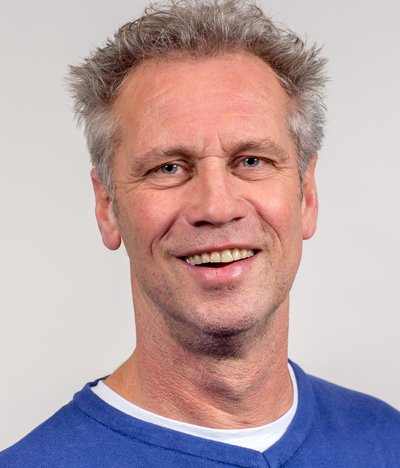Camilo Rindt
Department / Institute
Group

RESEARCH PROFILE
Camilo Rindt is an Associate Professor within the Energy Technology group at the department of Mechanical Engineering, Eindhoven University of Technology (TU/e). Camilo’s main interests are in the fields of PV/T combi-panels, seasonal compact heat storage for the built environment using solid sorption materials and district heating networks. Applications of his research range from material investigations on the hydration/dehydration behavior of solid sorption materials using molecular dynamics simulations and/or TGA/DSC experiments, to the design of a building-integrated PV/T system for the built environment and/or the optimization of a district heating network using distributed energy sources like geothermal heat and heat pumps.
ACADEMIC BACKGROUND
Camilo Rindt received his MSc and PhD from TU/e. In addition to his work as Associate Professor, he is also Program Director of the Master’s programs Sustainable Engineering Technology and Systems & Control. Besides, he is Graduate Program Director of Automotive Systems. As a PhD and postdoc, he has worked in the field of biomedical engineering on experimental and numerical analyses of blood flow in the carotid artery bifurcation.
Key Publications
-
M. Gaeini,A.L. Rouws,J.W.O. Salari,H.A. Zondag,C.C.M. Rindt
Characterization of microencapsulated and impregnated porous host materials based on calcium chloride for thermochemical energy storage
Applied Energy (2018) -
S. Lan,M. Gaeini,H.A. Zondag,A.A. van Steenhoven,C.C.M. Rindt
Direct numerical simulation of the thermal dehydration reaction in a TGA experiment
Applied Thermal Engineering (2018) -
M. Gaeini,R. Wind,P.A.J. Donkers,H.A. Zondag,C.C.M. Rindt
Development of a validated 2D model for flow, moisture and heat transport in a packed bed reactor using MRI experiment and a lab-scale reactor setup
International Journal of Heat and Mass Transfer (2017) -
L. Scapino,H.A. Zondag,J. Van Bael,J. Diriken,C.C.M. Rindt
Energy density and storage capacity cost comparison of conceptual solid and liquid sorption seasonal heat storage systems for low-temperature space heating
Renewable and Sustainable Energy Reviews (2017) -
L. Scapino,H.A. Zondag,J. Van Bael,J. Diriken,C.C.M. Rindt
Sorption heat storage for long-term low-temperature applications: A review on the advancements at material and prototype scale
Applied Energy (2017)
Current Educational Activities
Ancillary Activities
No ancillary activities